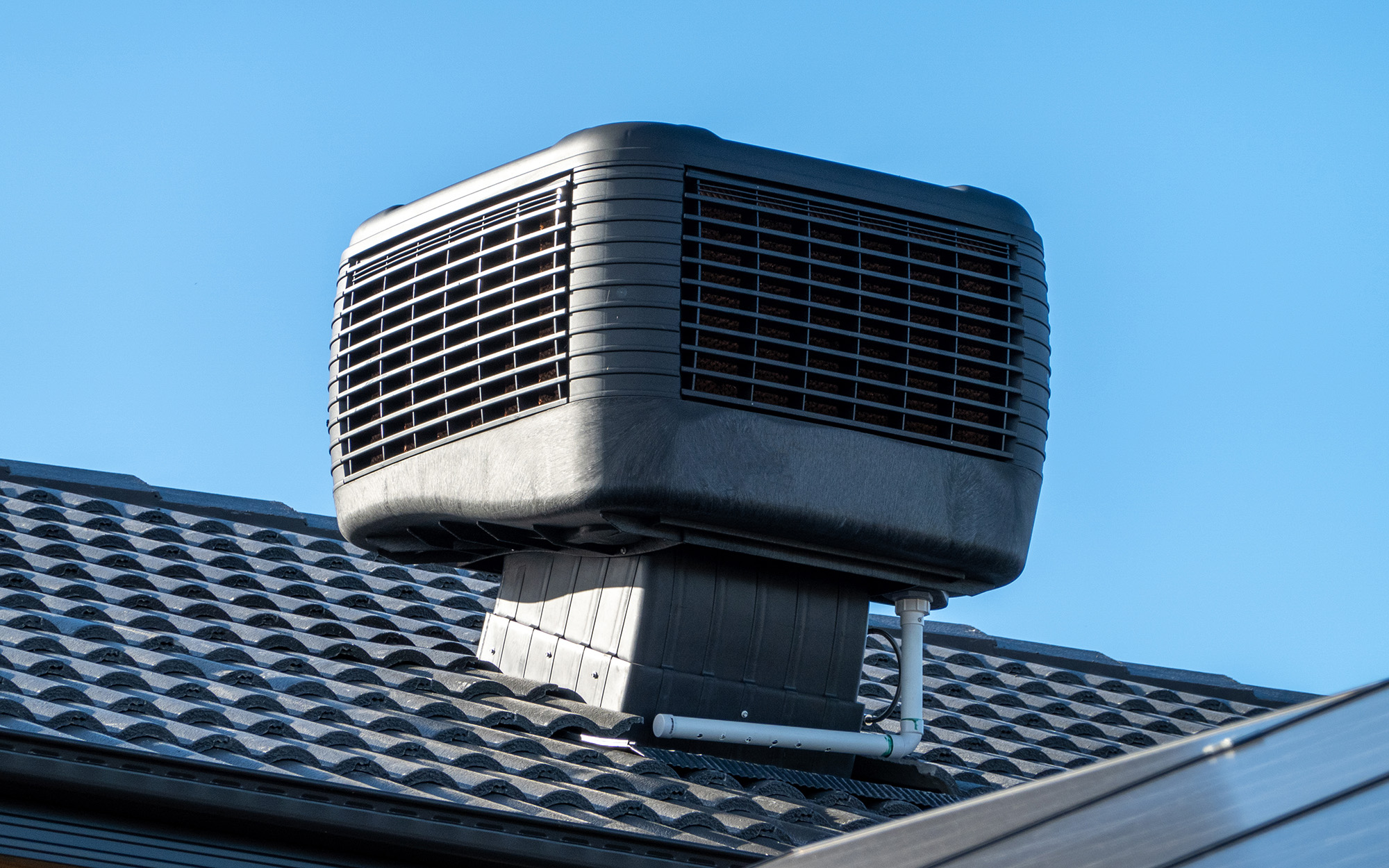Looking for more ways to use water efficiently
There are always more ways to save water. We’re partnering with research bodies and other organisations to find new ways to save water in our everyday lives.
From home and industrial cooling systems to water use in urban parks and gardens, our cross-sector research projects are providing data which will inform innovative new ways of delivering services and technology with maximum water efficiency.
See our current research projects:
Evaporative air coolers study
The NSW Government has funded a study to measure how much water can be saved by maintaining fixed evaporative air coolers.
Evaporative air coolers can use up to 100 litres per hour during hot weather, especially when they are not maintained.
We’ve partnered with Tamworth Regional Council, Taggle and the Institute for Sustainable Futures at the University of Technology Sydney to deliver the project.
The project focuses on 100 properties in the Tamworth council area and will run from November 2023 to February 2025. It will involve installing in-line flow meters to measure water use for several months over summer. After that, we’ll service the air coolers and continue measuring water use over the following summer period to track any changes.
Homeowners participating in the research study were selected from an expression of interest and eligibility process.
Project timeline
- October – November 2023: Recruitment of participants for the study
- November 2023: Installation of meters and data transmitters
- December 2023 – March 2024: Baseline data collection
- July – September 2024: Maintenance of evaporative air coolers
- October 2024 – February 2025: Final data collection
- February 2025: Participant survey
- Late 2025: Research findings published.
More information
Evaporative Cooling Roadmap
The NSW Government is funding a research project to assess and evaluate commercial and industrial evaporative cooling water use.
Evaporative cooling technology consumes large amounts of clean water, but it is possible to reduce the evaporated water by either making the coolers more efficient and by redirecting heat and water to other processes and water recovery technologies. A systematic literature review will be conducted on these opportunities for water reduction to map out pathways of development for low net water use evaporative cooling systems.
The research project will include investigation into wet/dry cooling for power plants, industrial waste heat and building HVAC (heating, ventilation and air conditioning). It will assess the current market for evaporative cooling technologies, explore the water use, identify Australian and international best practice and explore future challenges.
Opportunities for water reduction and options for different operating environments (including regional NSW) will be evaluated and compiled into a NSW Evaporative Cooling Roadmap. The roadmap will show the potential water, energy, and cost trade-offs of best practice implementation versus business as usual. The NSW Evaporative Cooling Roadmap will also consider the implications of climate change and emerging industries for evaporative cooling systems.
On-going research
Smart Irrigation for Parks and Cool Towns (SIMPaCT)
SIMPaCT was funded through the NSW Smart Places Acceleration Program under the Digital Restart Fund, and co-funded by the department and Sydney Water with in-kind contributions from other partners. The project was co-designed and delivered in a multidisciplinary partnership with several organisations from government, tertiary education and private industry, led by Western Sydney University.
The first phase of the pilot is now complete at Bicentennial Park, Sydney Olympic Park. The SIMPaCT pilot project ran between November 2021 and July 2023. It saw the establishment of SIMPaCT as a demonstrable solution to 4 key challenges facing parklands: urban heat; water efficiency; urban green infrastructure (UGI) management; and the maintenance of public amenity.
The aim of the pilot was to design and implement a fully operational demonstration of the SIMPaCT solution, capable of delivering ongoing long-term value. It serves as the start of a scalable expansion of the SIMPaCT solution. The project opens new pathways for how public parks can be designed, managed and experienced.
SIMPaCT uses machine learning and smart technology to cool the microclimate, using data sourced from a mix of environmental sensors. A network of sensors has been set up to record soil moisture and air temperature. The information will be used to fine-tune irrigation at the park using artificial intelligence (AI). Insights will be shared online so that park users will be able to find the coolest and shadiest places in the park for picnics, play and exercise. In addition, SIMPaCT helps mitigate the urban heat island effect in the adjacent residential precincts.
Sensors will record soil moisture and air temperature information and combine it with local weather forecasts. AI will then predict when and for how long different sections of the park need to be watered. The system will work with recycled water and uses the soil moisture outcomes to learn over time the most efficient irrigation regime.
The NSW Government has agreed to fund the project for a further 12 months to allow the project team to calculate cooling benefits and calculate the water savings against historical data.
Contact us
If you have any queries or require more information please email us at water.efficiencyprogram@dpie.nsw.gov.au.
